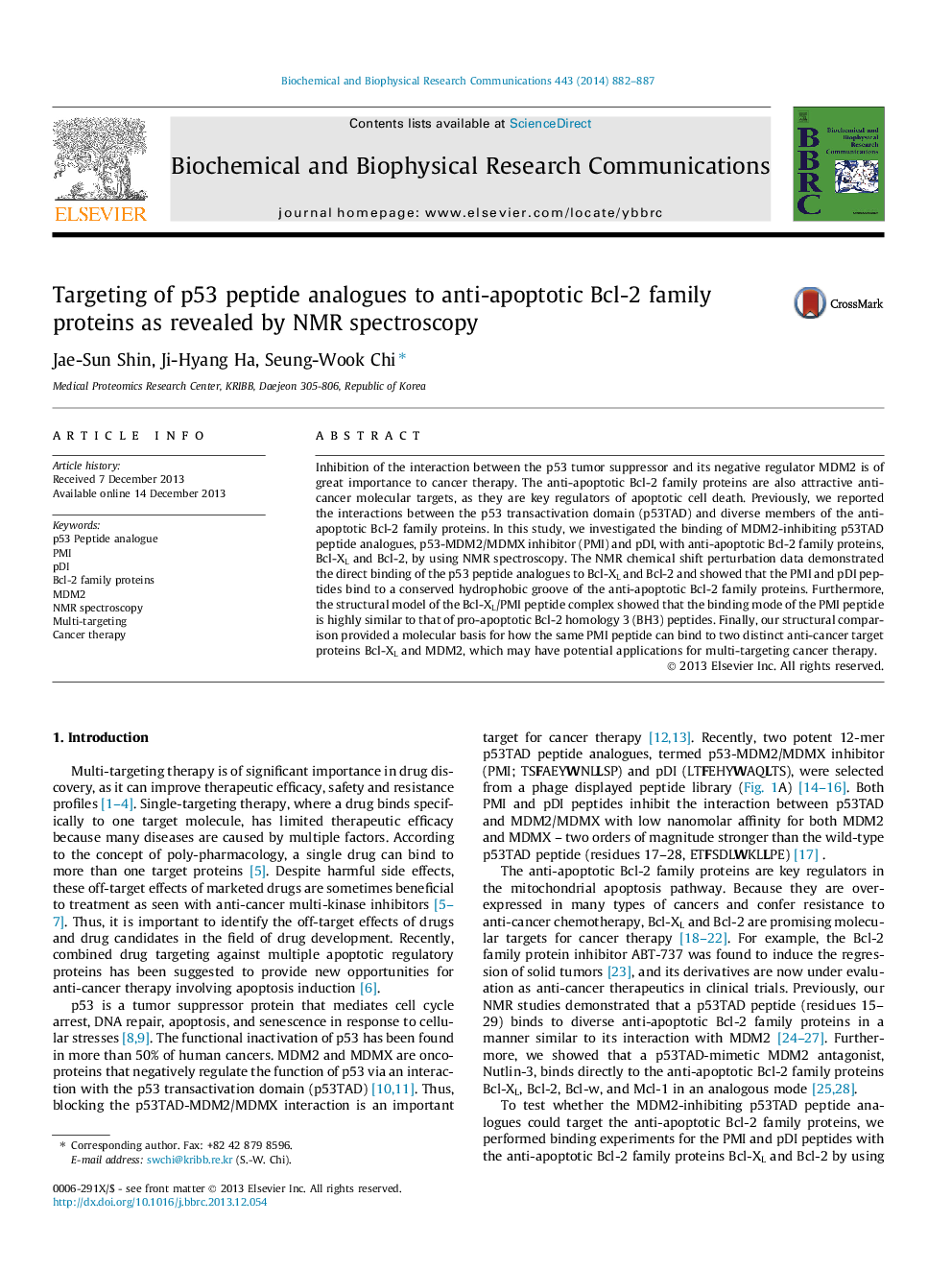| Article ID | Journal | Published Year | Pages | File Type |
|---|---|---|---|---|
| 10757039 | Biochemical and Biophysical Research Communications | 2014 | 6 Pages |
Abstract
Inhibition of the interaction between the p53 tumor suppressor and its negative regulator MDM2 is of great importance to cancer therapy. The anti-apoptotic Bcl-2 family proteins are also attractive anti-cancer molecular targets, as they are key regulators of apoptotic cell death. Previously, we reported the interactions between the p53 transactivation domain (p53TAD) and diverse members of the anti-apoptotic Bcl-2 family proteins. In this study, we investigated the binding of MDM2-inhibiting p53TAD peptide analogues, p53-MDM2/MDMX inhibitor (PMI) and pDI, with anti-apoptotic Bcl-2 family proteins, Bcl-XL and Bcl-2, by using NMR spectroscopy. The NMR chemical shift perturbation data demonstrated the direct binding of the p53 peptide analogues to Bcl-XL and Bcl-2 and showed that the PMI and pDI peptides bind to a conserved hydrophobic groove of the anti-apoptotic Bcl-2 family proteins. Furthermore, the structural model of the Bcl-XL/PMI peptide complex showed that the binding mode of the PMI peptide is highly similar to that of pro-apoptotic Bcl-2 homology 3 (BH3) peptides. Finally, our structural comparison provided a molecular basis for how the same PMI peptide can bind to two distinct anti-cancer target proteins Bcl-XL and MDM2, which may have potential applications for multi-targeting cancer therapy.
Related Topics
Life Sciences
Biochemistry, Genetics and Molecular Biology
Biochemistry
Authors
Jae-Sun Shin, Ji-Hyang Ha, Seung-Wook Chi,
